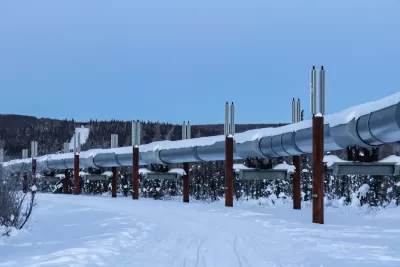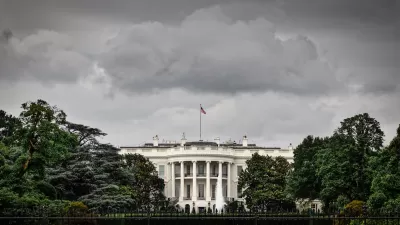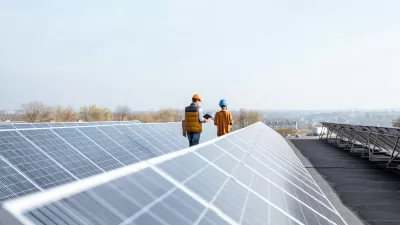Several executive orders signed on Monday seek to repeal Obama- and Biden-era environmental regulations and roll back goals to encourage the shift to electric vehicles.

Climate activists and electric vehicle advocates are closely watching President Trump’s executive orders, many of which are aimed at rolling back Biden-era climate regulations and (non-binding) electrification goals.
Language in an executive order issued by Trump on Monday would roll back a federal exemption that allowed California and other states to mandate the phasing out of gas-powered vehicles and puts a pause on funding for EV charging infrastructure, according to an Associated Press article. It also attempts to eliminate EPA rules on greenhouse gas emissions for transportation and indicates the administration will push to eliminate the federal EV tax credit.
In a statement, the Union of Concerned Scientists criticized Trump’s “attack” on science, saying, “Standards incentivizing lower tailpipe emissions and higher fuel efficiency for cars and trucks have been a cornerstone in the fight against air pollution, successfully reducing global warming pollution smog and soot, while saving consumers billions of dollars at the gas pump. Rescinding these lifesaving standards places fossil fuel industry interests above all else and would be devastating for people and the planet.”
The New York Times’ Lisa Friedman outlines other climate-related orders signed on Monday, including one that withdraws the United States from the Paris Climate Agreement and another that attempts to unlock more federal lands for oil drilling and fossil fuel extraction by declaring a national “energy emergency.” According to Friedman, “Collectively, the executive orders put the United States on a path to increasing production of coal, oil and gas at a time when scientists say governments must rapidly pivot away from fossil fuels, the burning of which is dangerously heating the planet.” More alarmingly, “Buried deep inside Trump’s order on ‘unleashing American energy’ is a directive that would not just end climate regulations, but would also make sure no future administration could ever curb dangerous emissions from fossil fuels” by rescinding what is known as the ‘endangerment finding.’
The majority of Trump’s executive orders are expected to face legal challenges and, even if valid, will require time-consuming processes to repeal and change regulations.
FULL STORY: 3 of the Most Important Trump Executive Orders on Climate

Trump Administration Could Effectively End Housing Voucher Program
Federal officials are eyeing major cuts to the Section 8 program that helps millions of low-income households pay rent.

Planetizen Federal Action Tracker
A weekly monitor of how Trump’s orders and actions are impacting planners and planning in America.

Ken Jennings Launches Transit Web Series
The Jeopardy champ wants you to ride public transit.

California Invests Additional $5M in Electric School Buses
The state wants to electrify all of its school bus fleets by 2035.

Austin Launches $2M Homelessness Prevention Fund
A new grant program from the city’s Homeless Strategy Office will fund rental assistance and supportive services.

Alabama School Forestry Initiative Brings Trees to Schoolyards
Trees can improve physical and mental health for students and commnity members.
Urban Design for Planners 1: Software Tools
This six-course series explores essential urban design concepts using open source software and equips planners with the tools they need to participate fully in the urban design process.
Planning for Universal Design
Learn the tools for implementing Universal Design in planning regulations.
Ada County Highway District
Clanton & Associates, Inc.
Jessamine County Fiscal Court
Institute for Housing and Urban Development Studies (IHS)
City of Grandview
Harvard GSD Executive Education
Toledo-Lucas County Plan Commissions
Salt Lake City
NYU Wagner Graduate School of Public Service





























